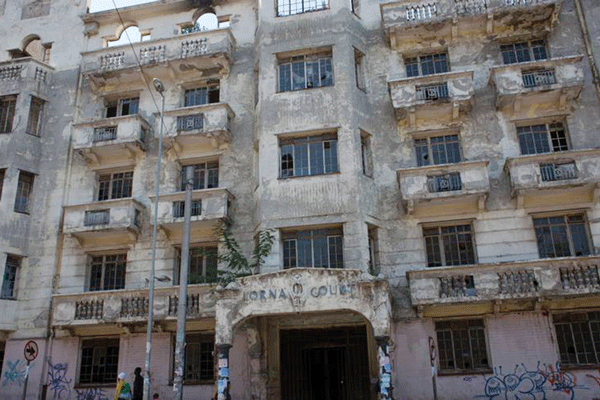
As I travel through Africa and African countries, I have become convinced that Africans do not realise the importance of maintaining and updating the infrastructure, resources, facilities, and support systems of their countries.
Guest Column: FUBAR BUNDY

Hilaire Belloc once wrote: “The Barbarian hopes — and that is the mark of him — that he can have his cake and eat it too. He will consume what civilisation has slowly produced after generations of selection and effort, but he will not be at pains to replace such goods, nor indeed has he a comprehension of the virtue that has brought them into being. Discipline seems irrational to him … In a word, the Barbarian can befog and destroy, but he cannot sustain; and of every Barbarian in the decline or peril of every civilisation exactly that has been true.”
I would certainly never brand African people as “Barbarians”. And I’m sure that Belloc was not referring to Africans when he wrote those words either.
But the rest of his observations definitely resonate with the decline that I have witnessed in every single African country that I have ever visited.
South Africa, a country with which I have become intimately familiar over the past decade or so, is a shining example of the Belloc Syndrome (my own terminology).
There is not one, repeat, not one, single instance, where the infrastructure in South Africa hasn’t deteriorated badly, or where it is not on the brink of catastrophic collapse.
Roads; electricity and water supply; education; health care; railways; post office; airways; telecommunications; public broadcaster; law enforcement; judicial system; town planning; welfare of the old, frail, and homeless; childcare; sport facilities; public and national parks — the list is seemingly endless.
- Chamisa under fire over US$120K donation
- Mavhunga puts DeMbare into Chibuku quarterfinals
- Pension funds bet on Cabora Bassa oilfields
- Councils defy govt fire tender directive
Keep Reading
The country is literally going down the drain.
But here’s the thing: The desks, windows, and doors at schools don’t last forever — children are destructive little animals. Schools, buildings, and equipment, need to be inspected regularly and repaired/replaced/maintained.
The raw sewage, running down the streets, poses a health hazard. Sewerage pipes need to be maintained and upgraded if there is an increase in the size of the local population.
The garbage and rubbish, piling up in the streets, parks, and on the sidewalks, needs to be collected according to set time schedules.
When specialised medical equipment in the hospitals breaks down due to the lack of preventative maintenance, patients will, and do, die.
Railways, airways, and post offices need skilled, committed, competent staff to upgrade, maintain, and oversee the smooth running of their systems.
Be it the filthy old Arab Fort in Zanzibar Town, on the East African coast; or the foul-smelling City of Maputo municipality building, in Mozambique; or the remains of the potholed R540 tar road on the way to Lydenburg, Mpumalanga, South Africa — they all attest to one thing: no maintenance or upkeep, whatsoever.
What African countries don’t seem to realise is that the old adage is absolutely true: A stitch in time saves nine. Maintenance and upkeep is expensive; but in the long term, billions will be saved. Guaranteed.
Fubar Bundy is a renowned writer, of Indian origin, who travels the world and comments on the state of the various nations in general; and the level of development of selected countries in particular.











